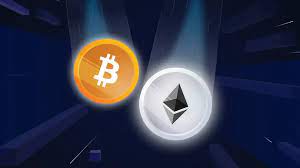If Bitcoin is “Digital Gold,” Could Ethereum Be Seen as “Digital Oil”?
When people talk about Bitcoin, it’s often described as digital gold—a scarce, secure, and valuable store of wealth. But when it comes to Ethereum, the conversation takes a different turn. Some call Ethereum digital oil, but is that a fair comparison? Let’s break it down in simple terms.
Why Bitcoin is “Digital Gold”
Bitcoin was designed with one main purpose: to be a decentralized currency with a limited supply. Just like gold, it doesn’t generate anything on its own, but its scarcity and security make it a reliable store of value. Investors often use Bitcoin as a hedge against inflation, much like they would with precious metals.
Why Ethereum Might Be “Digital Oil”
Ethereum, on the other hand, powers an entire ecosystem of decentralized applications (dApps). Its cryptocurrency, Ether (ETH), is used to pay for “gas fees” when executing smart contracts or running applications on the blockchain. In this way, Ethereum fuels innovation and transactions—much like oil fuels the global economy. Without Ethereum, many decentralized apps, NFTs, and DeFi projects simply wouldn’t run.
Why the Metaphor Isn’t Perfect
Still, calling Ethereum “digital oil” isn’t without flaws. Oil is a consumable, and once burned, it’s gone. Ethereum, however, isn’t consumed in the same way—though fees are spent, Ether still circulates within the ecosystem. Plus, Ethereum isn’t just fuel; it’s also infrastructure. It provides the foundation for programmable money and decentralized systems, making it much more versatile than oil.
The Bottom Line
So, is Ethereum “digital oil”? In some ways, yes—it powers the blockchain economy like oil powers industries. But in reality, Ethereum might be better described as a digital economy platform rather than just a resource. While Bitcoin shines as digital gold, Ethereum is the engine driving Web3 forward.

